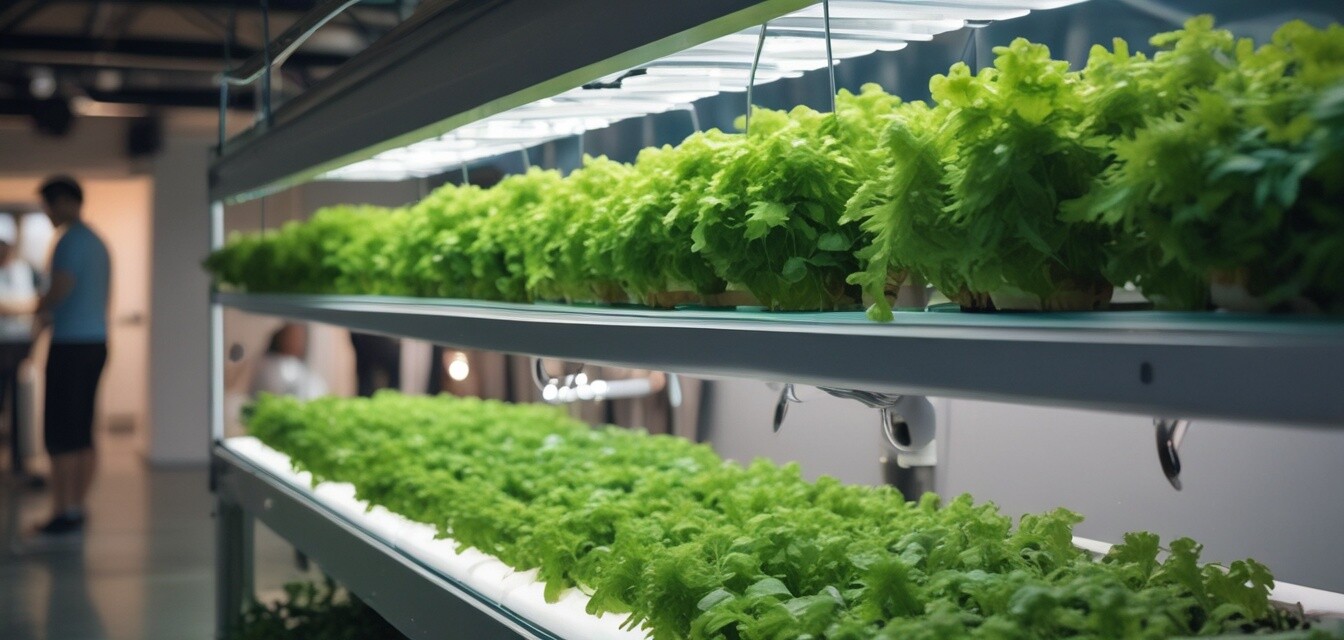
Hydroponics' Role in Sustainable Food Practices
- Hydroponics promotes sustainable agriculture by conserving water and reducing pesticide use.
- It allows for year-round food production regardless of climate conditions.
- Urban areas benefit from the efficiency of hydroponics to grow fresh produce locally.
- Hydroponic systems can be scaled for various growing needs, from small gardens to commercial farms.
- Innovations in hydroponic technology are continuously improving sustainability efforts.
Hydroponic gardening is not just a trend; it's a revolution in how we think about food production. This innovative method allows plants to grow without soil, using nutrient-rich water solutions that provide necessary sustenance directly to the roots. This article explores how hydroponics plays a crucial role in sustainable food practices, focusing on water conservation, reduced pesticide use, and its implementations in urban settings.
Understanding Hydroponics
Hydroponics involves growing plants in a soilless environment, which significantly alters the traditional agricultural landscape. By utilizing precise nutrient solutions and controlled environments, hydroponics maximizes growth efficiency.
How Hydroponics Works
Hydroponic systems can range from simple DIY setups to complex automated systems. Here’s a breakdown of commonly used hydroponic systems:
| System Type | Description | Benefits |
|---|---|---|
| NFT (Nutrient Film Technique) | A thin film of nutrient solution flows over plant roots. | Highly efficient with water and nutrients. |
| Deep Water Culture | Plant roots are submerged in oxygen-rich nutrient solution. | Fast growth cycles and simple to set up. |
| Drip Systems | Nutrients are dripped onto the roots at regular intervals. | Excellent for larger scale operations. |
| Aeroponics | Plants are suspended and misted with nutrient solution. | Maximizes oxygen exposure and nutrient absorption. |
Sustainable Benefits of Hydroponics
This growing method yields numerous sustainable advantages:
Water Conservation
One of the most significant benefits of hydroponics is water savings. Traditional agriculture can consume vast amounts of water. In contrast, hydroponic systems recirculate water, which leads to:
- Up to 90% less water usage compared to conventional farming.
- Reduction of water waste and runoff, protecting local ecosystems.
- Efficient moisture management, allowing plants to thrive without over-saturation.
Reduced Pesticide Use
Hydroponic systems also minimize the need for chemical pesticides, promoting a healthier growing environment. By controlling variables such as humidity and temperature:
- Plants can be grown indoors, reducing exposure to pests.
- Integrated pest management techniques can be employed effectively.
- Production of cleaner, chemical-free crops, enhancing food safety.
Urban Agriculture and Hydroponics
Given the rise in urban living, hydroponics is a key player in creating sustainable urban agriculture scenarios:
- Space-saving installations can be placed on rooftops and in small backyards.
- Fresh produce can be grown locally, minimizing transportation footprints.
- Urban hydroponic farms can support food deserts, providing fresh food where it's lacking.
Innovations in Hydroponics
The future of hydroponics is bright, with various technological advancements making the practice even more sustainable:
- Automated systems allow for precise nutrient delivery.
- The Internet of Things (IoT) applications enhance monitoring of plant health and growth conditions.
- Energy-efficient lighting solutions significantly reduce energy consumption.
Challenges and Considerations
While hydroponics offers many benefits, it’s essential to consider the challenges:
Pros
- High yield and faster growth rates compared to traditional gardening.
- Less dependent on the weather and soil conditions.
- Reduction in the carbon footprint associated with transportation.
Cons
- Initial setup costs can be high for advanced systems.
- Requires a learning curve to manage nutrient balance and system maintenance.
- Potential risk of system failures affecting crop yield quickly.
Conclusion
Hydroponics stands out as a sustainable solution to current food production challenges. As we continue to innovate and develop more effective practices, this method can significantly contribute to efficient food systems, resource conservation, and healthy living. By investing in hydroponic systems and technologies, we can pave the way toward a more sustainable future for food production, wherever it may be cultivated. Explore more about buying hydroponic systems, or discover the latest news and trends in hydroponics to stay informed. Whether you are interested in commercial operations or small-scale gardening, hydroponics has a place in our changing world.

